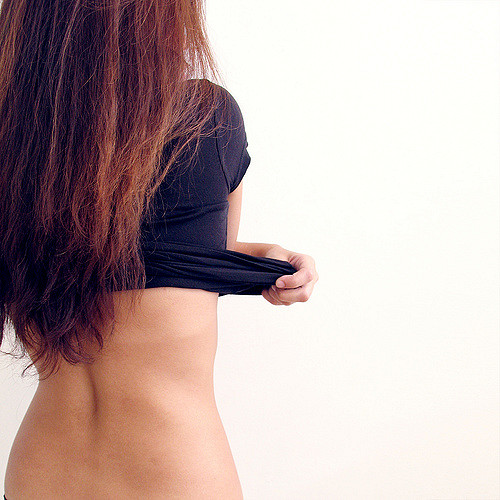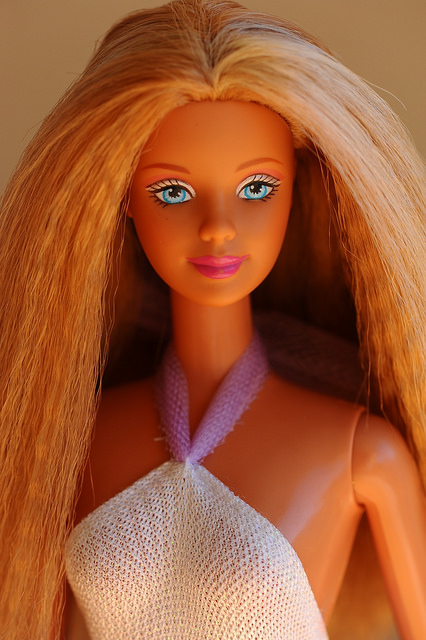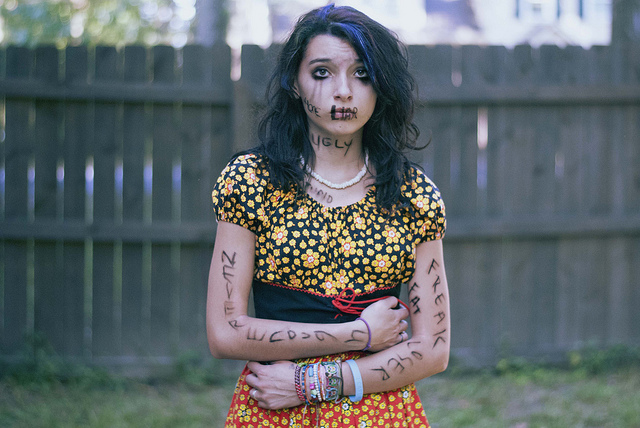More often than not, we are tainted with the burden of negativity to view our bodies critically – the desire for change spiralling endlessly into a relentless battle with the mirror on the promise of losing a few pounds, or committing to daily workouts and extreme diets. But what exactly are we trying to attain? Whether it’s the influence of social media and the constant stream of images depicting a supposedly “perfect” figure, or a broader societal/cultural objectification of bodies promoting the physical as not only our most valuable asset, but also as the main factor of sexual attraction – it’s hard to ignore the immense pressure to conform to an “ideal”.
Social media plays a large role in the establishment of the beauty standards. The interlinking of all social media sites contributes to the idealised body we have become familiarised with. The depiction of physical ideals is consistent across all social media platforms – as they all feed off and into each other – allowing a concrete consensus to emerge. For women, it constitutes a big arse, big boobs, all whilst maintaining a tiny waist, a flat stomach, and a thigh gap. Men, on the other hand, are expected to replicate the muscular, defined, and lean physique once associated with Greek Gods. This what is put forward as the ideal, and everyone is subject to it: it’s inescapable.
Back in the real world, beauty standards that dictate the way we should all present ourselves spread like an epidemic, plaguing the minds of all who feel the need to attain them. The numbers of those affected aren’t small – instead, they multiply every day. Reaching the popularised beauty standard is seen as a recipe for happiness -each form of gratification we receive (a passing comment on weight loss, for example) validates our progress towards that ideal and the satisfaction it may bring. This pursuit can become addictive, with so much hope riding on the idea that one day you will be noticed and be accepted into the ranks of the beauty elite.
Yet, while on our perfectly polished exteriors we like to pass this off as an easy journey, breaking behind the surface uncovers a punishing mental torment driving us to achieve such ideals. Our self-detriment and, often, our hatred of how we look can become overwhelming as we continuously search for a way to fit the mould. We will try anything: crash diets, crazy workouts, or some hyped-up product that can shrink your waist, whilst simultaneously crushing your ribs. It’s not just the chase for the end result, it’s the time that is spent scrutinising in the mirror and browsing Instagram, relinquishing in feelings of inadequacy. Each step taken deeper into the world of negative body images becomes inherently scarier, hanging on the thin edge where you dangle on the depths of body dysmorphia and eating disorders. The more you are exposed to and engage with the beauty ideals popularised online, the more harmful they become. The desire to meet the expected physical criteria becomes a priority, and someone may adopt any means to achieve this – even if, like an eating disorder, it takes a toll on their physical health. This issue is something we need to remedy, for the sake of so many.
The feeling is one thing I know all too well. Getting to the point where I feel able to admit the relationship I had with my own body was no longer an amicable one has taken a long time. With 5 years in the making, it’s still one I contend with today. Looking back at my 14-year-old self, I was obsessed by the numbers on the scale, and weighing myself became a daily ritual. Any pound over what I wanted to weigh was enough to send me into a self-loathing spiral which rendered my mental capability to comprehend anything other than dieting or exercise useless. Each pound I lost felt like a victory, one step closer to eternal happiness, but that happiness never came. Instead, it self-perpetuated into an unhealthy relationship with food, obsessive exercising and enough self-hatred to stare in the mirror and detest everything about myself. Nowadays, I’m known amongst my friends as the gym bunny, the health enthusiast who watches what they eat and knows a bit too much about nutrition. But that hasn’t come lightly, it’s the aftermath of a connection to my body which is still fuelled by aesthetics. I don’t know how long it will take to disconnect from that part of myself. I’m still trying.
However, five years is a long time. With a bit of maturity and introspective thinking, I’ve had a realisation. I’m chasing something that is endless, and self-deprecation is no fun thing. The value we place on ourselves, based on our body image is only one small piece of who we are. We are brilliant beings and have so much more to give to the world. Our value isn’t based on appearance; instead, we are valued for the things we do and what we embody. We are loved for who we are. The biggest revolution, and often the hardest, is learning to love yourself.
This journey, I am assured, is not just my own, and it is with passion that I was inspired to start the Body Positivity Society in Durham. We are a brand-new society who are all about inclusivity, good times, and encouraging self-love. We want to explore all the complexities of body image, everything from Photoshop to embracing imperfections, through art sessions, socials and discussions. Going against all the imposing thoughts we face on social media, we want to redefine beauty and claim back realness. You’ll be able to catch us at the Freshers’ Fair and follow us on our Facebook and Instagram pages for what will be a journey of establishing self-confidence in the student community.
Instagram: @durhambodypositivity




